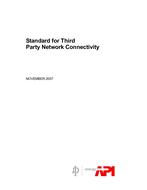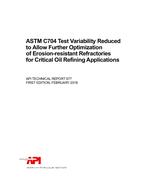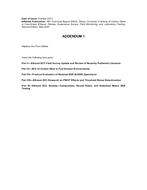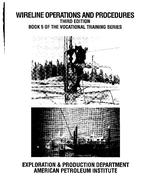Description
This inspection code covers the in-service inspection, repair, alteration, and rerating activities for pressure vessels and the pressure-relieving devices protecting these vessels. This inspection code applies to all hydrocarbon and chemical process vessels that have been placed in service unless specifically excluded per 1.2.2; but it could also be applied to process vessels in other industries at owner/user discretion. This includes:
a) vessels constructed in accordance with an applicable construction code [e.g. ASME Boiler and Pressure Vessel Code (ASME Code)];
b) vessels constructed without a construction code (noncode vessels)-a vessel not fabricated to a recognized construction code and meeting no known recognized standard;
c) vessels constructed and approved as jurisdictional special based upon jurisdiction acceptance of particular design, fabrication, inspection, testing, and installation;
d) nonstandard vessels-a vessel fabricated to a recognized construction code but has lost its nameplate or stamping.
However, vessels that have been officially retired from service and abandoned in place (i.e. no longer are an asset of record from a financial/accounting standpoint) are no longer covered by this “in-service inspection” code.
The ASME Code and other recognized construction codes are written for new construction; however, most of the technical requirements for design, welding, NDE, and materials can be applied to the inspection, rerating, repair, and alteration of in-service pressure vessels.
If for some reason an item that has been placed in service cannot follow the construction code because of its new construction orientation, the requirements for design, material, fabrication, and inspection shall conform to API 510 rather than to the construction code.
If in-service vessels are covered by requirements in the construction code and API 510 or if there is a conflict between the two codes, the requirements of API 510 shall take precedence. As an example of the intent of API 510, the phrase “applicable requirements of the construction code” has been used in API 510 instead of the phrase “in accordance with the construction code.”
Product Details
- Edition:
- 10th
- Published:
- May 2014
- Number of Pages:
- 71
- File Size:
- 1 file , 690 KB
- Redline File Size:
- 2 files , 1.8 MB
- Product Code(s):
- C51010, C51010, C51010, C51010, C51010, C51010, C51010, C51010, C51010
- Note:
- This product is unavailable in Cuba, Iran, North Korea, Syria




